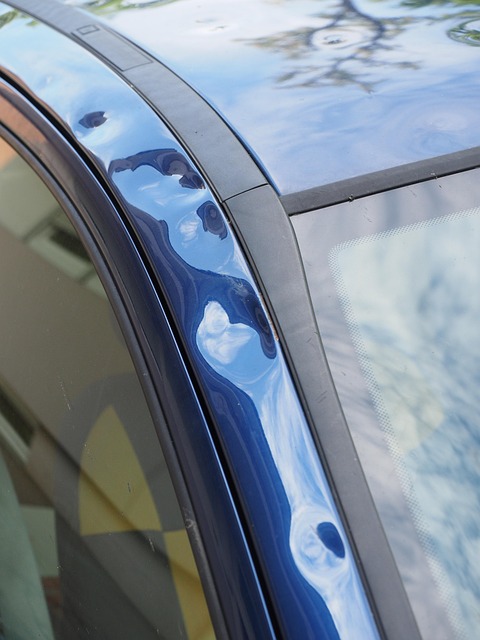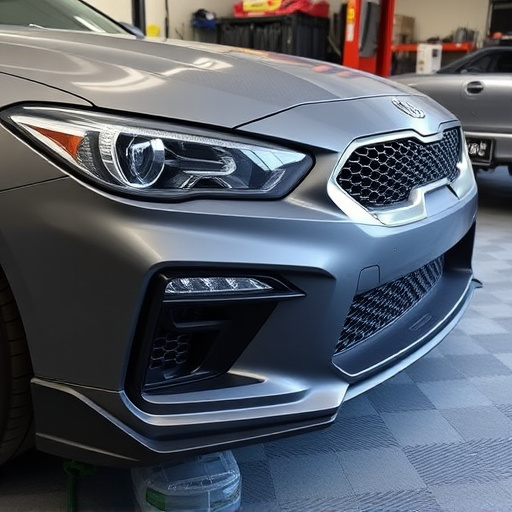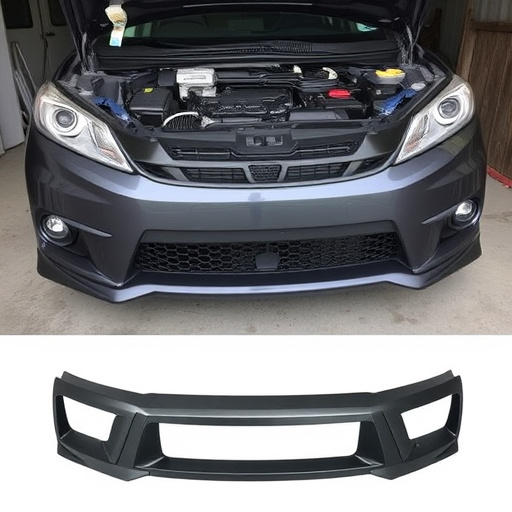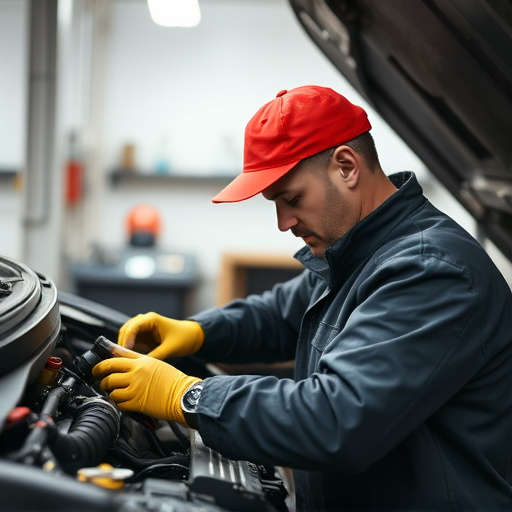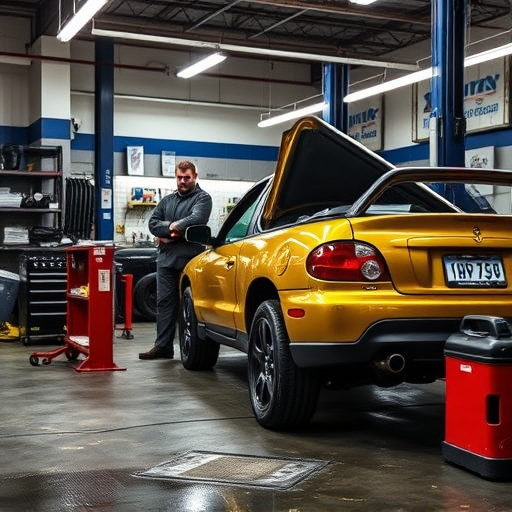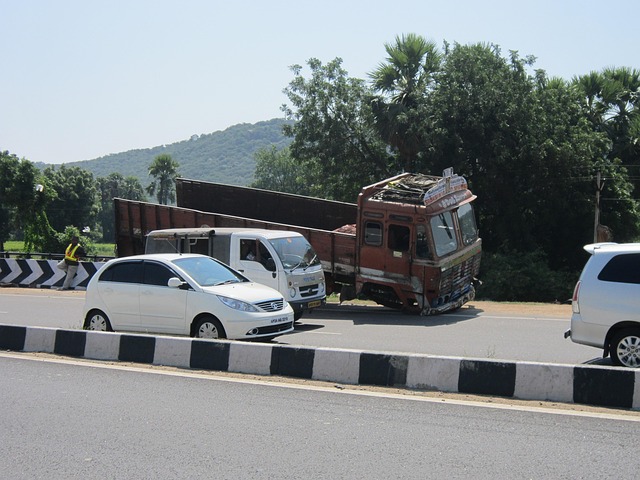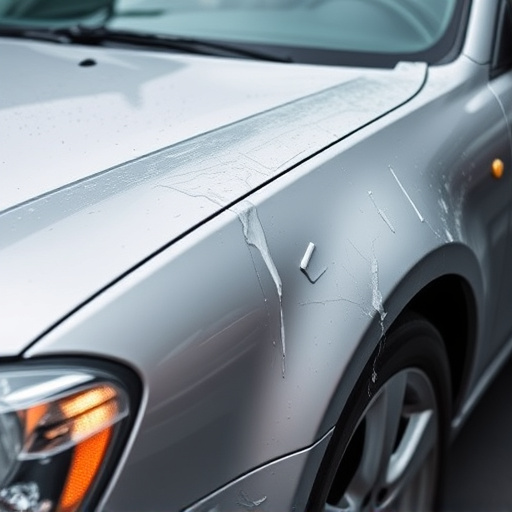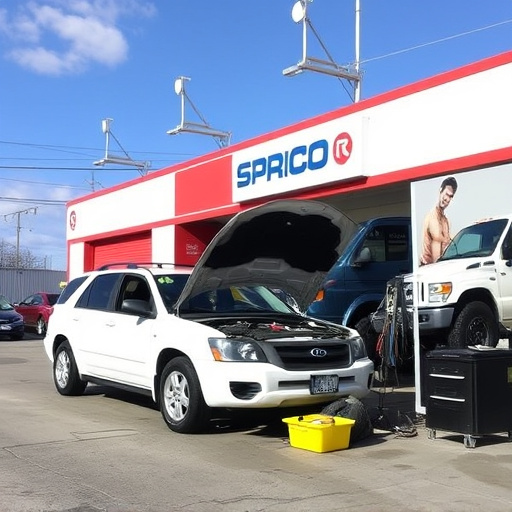The Mercedes Rollover Protection System (RPS) is a critical safety feature that relies on accurate Controller Area Network (CAN bus) signals for effective operation. Minor discrepancies in these signals can impact RPS performance, emphasizing the need for meticulous diagnostic and repair techniques by trusted auto body shops to ensure optimal system functionality and enhanced passenger safety. Regular maintenance and immediate repair of signal-related issues, including dent removal and auto glass replacement, are vital to maintain the integrity of CAN bus signals and ensure the Mercedes rollover protection system functions properly during potential rollovers.
Mercedes’ Rollover Protection System (RPS) is a vital safety feature designed to minimize injuries during a rollover accident. This innovative system relies heavily on Controller Area Network (CAN) bus signals for its operation. The accuracy and reliability of these CAN bus signals are crucial for the RPS to function as intended, ensuring optimal occupant protection. In this article, we’ll explore how these signals play a pivotal role in the RPS’s effectiveness and discuss strategies to maintain their precision.
- Understanding Mercedes Rollover Protection System (RPS)
- The Role of CAN Bus Signals in RPS Functionality
- Ensuring Signal Accuracy for Optimal Safety Performance
Understanding Mercedes Rollover Protection System (RPS)

The Mercedes Rollover Protection System (RPS) is a sophisticated safety feature designed to protect occupants in case of a vehicle rollover. This system utilizes a network of sensors and actuators that work in tandem to detect and mitigate the impact during such an event. The RPS is integrated into the vehicle’s structure, deploying airbags and retracting seatbelts to minimize the risk of severe injuries.
For the Mercedes RPS to function optimally, it relies heavily on accurate communication through the Controller Area Network (CAN) bus system. This network allows various components in a modern car to exchange data and coordinate actions. In the context of collision repair, especially at a reputable auto body shop or paintless dent repair facility, maintaining the integrity of these CAN bus signals is crucial. Even minor signal discrepancies could potentially affect the RPS’s performance, underscoring the importance of precise diagnostic and repair techniques for optimal system functionality and passenger safety.
The Role of CAN Bus Signals in RPS Functionality

The Mercedes rollover protection system (RPS) relies heavily on accurate CAN Bus signals to function effectively. The Controller Area Network (CAN Bus) is a critical communication protocol that enables various components within the vehicle to exchange data and control commands in real-time. In the context of RPS, these signals are essential for coordinating the deployment and operation of safety mechanisms during a rollover event.
Accurate CAN Bus signals ensure that sensors detect the onset of a rollover promptly and precisely, triggering the appropriate response from the RPS. This includes deploying roll bars, side impact protection systems, and other safety features designed to minimize injury. Moreover, the reliability of these signals is paramount in ensuring that the vehicle’s various systems work in harmony during critical incidents, ultimately enhancing the overall safety of Mercedes vehicles. For those who require specialized repairs, such as paintless dent repair or body work from a trusted vehicle body shop, near-perfect signal accuracy means faster and more effective auto repair near me options, further contributing to peace of mind for Mercedes owners.
Ensuring Signal Accuracy for Optimal Safety Performance

The Mercedes rollover protection system is a sophisticated piece of technology designed to enhance passenger safety during potential rollovers. Its effectiveness hinges on the accuracy and reliability of communication signals within its control units. The Controller Area Network (CAN) bus, which acts as the vehicle’s neural network, plays a pivotal role in transmitting data between various sensors, actuators, and control modules. Ensuring the integrity of these CAN bus signals is paramount for optimal performance of the rollover protection system.
Any discrepancies or inaccuracies can lead to delayed or incorrect deployment of safety mechanisms like airbags and seatbelts during an accident. Consequently, regular maintenance and prompt repair of any signal-related issues are essential. This includes addressing problems such as dent removal or hail damage repair that might affect the integrity of the vehicle’s body and, consequently, its structural sensors. Auto glass replacement is another aspect to consider, as proper sealing is crucial for maintaining accurate pressure readings, a key factor in activating the rollover protection system when needed.
The Mercedes Rollover Protection System (RPS) relies heavily on accurate CAN bus signals for its critical safety functions. Maintaining signal integrity is paramount to ensure the RPS effectively protects drivers in potential rollover scenarios. By understanding the intricate relationship between CAN bus signals and the RPS, automotive engineers can optimize system performance, ultimately enhancing overall vehicle safety. Accurate signal transmission through the CAN network is a game-changer in ensuring the Mercedes RPS delivers its intended protection.

